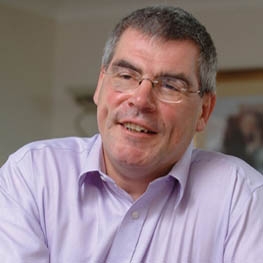Exclusive The former chair of the QOF advisory committee has said that he is ‘completely against’ the move to reward practices for prescribing statins to patients with a QRISK score above 10%, arguing that NICE had ‘lost the plot’ by proposing the measure.
Dr Colin Hunter, a GP in Westhill, Aberdeenshire, was speaking ahead of today’s decision by the new QOF panel as to whether to include two key new indicators that would promote statin use at the controversial new 10% primary prevention threshold, a proposal that has already been attacked by the BMA and the RCGP.
It comes as GP leaders have criticised NICE for replacing Dr Hunter with a specialist doctor instead of another GP, with one warning it was a ‘disaster’ for the profession.
Speaking to Pulse, Dr Hunter said that it was ‘fair enough’ for the committee to change things that are already in QOF as the evidence changes.
However, he added: ‘I personally am completely against the 10%. I don’t think there is enough evidence to support it and I think it’s a societal question.
‘I think it is where NICE has lost the plot – when you end up with the majority of people over 65 needing a statin because the economics tell you that. The economics are far from a good science.’
Pulse reported on Friday that the RCGP and the GPC had both criticised the measure, calling for the QOF committee to reject the proposal.
Dr Hunter’s intervention comes ahead of the first meeting of the newly convened QOF advisory committee today, headed up by cardiothoracic surgeon Professor Danny Keenan.
Related stories
GP leaders unite to reject NICE proposal to put 10% statin threshold in the QOF
GPs to be incentivised to prescribe statins at 10% risk threshold under NICE proposals
Dr Hunter recently stood down after NICE merged the QOF panel with the board that oversees the CCG outcomes indicator set – installing Professor Keenan at the helm.
However, Dr Peter Swinyard, chair of the Family Doctor Association, said putting a non-GP in charge would be ‘a disaster’ for the profession.
Dr Swinyard said: ‘We consider it a total disaster because however clever, well-read and knowledgeable a specialist may be, they cannot take a holistic view of the patient in the context of their environment. Unless you can take that broad view you shouldn’t be setting standards for GPs to have to follow.’
He added: ‘In the same way the average cardiothoracic surgeon might find it moderately offensive if I said, “Here is the complication rate I expect you should get from aortic valve replacement and as GPs we do not expect you to get a worse complication rate and if you do you should be penalised financially”.’
The previous NICE QOF committee included 15 GPs on a panel of 31, whereas the new merged committee includes three practing GPs out of 16 members. However, NICE has insisted the panel will still have strong GP representation, as a dedicated primary care team – including an extra seven GPs – will be seconded to the main panel when discussing QOF matters.
Dr Andrew Green, chair of the GPC clinical and prescribing subcommittee said it was important to consider views across a range of stakeholders but added that it would be ‘gratifying’ if GPs chaired those committees presiding over primary care matters.
Dr Green said: ‘The role of the chair of any group is to make sure that all views are properly considered, rather to impose their own views on the panel, and these qualities are more important than the place of work of the chair.
‘Having said that, both NICE and the GPC recognise the importance of GP involvement in NICE, and it would be gratifying to see GPs chairing some of the committees that will have greatest impact on primary care.’
This story was updated 1 June 2016 at 16:30 to correct the number of GPs included on the seconded QOF group, from five to seven.
Pulse July survey
Take our July 2025 survey to potentially win £1.000 worth of tokens












